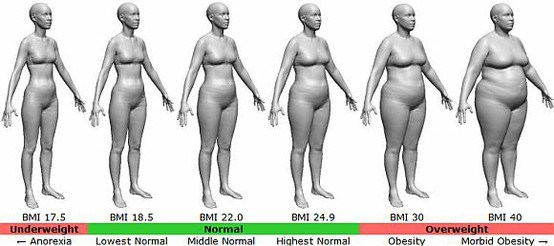BMI Matters for Tubal Reversal Surgery
 New patients are sometimes disappointed to find out that being obese can prevent us from approving them as a tubal reversal candidate. But, this is the case, as surgical risks are too high for obese patients.
New patients are sometimes disappointed to find out that being obese can prevent us from approving them as a tubal reversal candidate. But, this is the case, as surgical risks are too high for obese patients.
Body Mass Index (BMI) is a frequently used measure to determine if a person is underweight, normal weight, overweight, or obese. You can use the BMI calculator at the right by entering your height and weight.
Use the ranges below to determine what your BMI means:
- If your BMI is less than 18.5, it falls within the underweight range.
- If your BMI is 18.5 to <25, it falls within the normal.
- If your BMI is 25.0 to <30, it falls within the overweight range.
- If your BMI is 30.0 or higher, it falls within the obese range.
A higher BMI means that you are at higher risks of disease such as high blood pressure, heart disease, diabetes, and stroke. According to the American Congress of Obstetricians and Gynecologists (ACOG), higher BMIs are linked to a higher rate of post-surgical complications such as wound infection, urinary tract infection, and heart attack.
Additionally, obesity during pregnancy increases your risk of getting gestational diabetes (sugar in the blood), high blood pressure, pre-term labor, pregnancy loss, and having a larger baby which can complicate delivery.
 A BMI of 32 or below is required in order to have the best possible outcome and the least possible complications of tubal reversal surgery.
A BMI of 32 or below is required in order to have the best possible outcome and the least possible complications of tubal reversal surgery.
How to Reduce Your BMI
If your goal is to reduce your weight so that you qualify for tubal reversal surgery, make changes in your diet and exercise habits. Remember that the changes will not only help you lose weight, but to build a healthy lifestyle for your life and the life of your future tubal reversal babies.
Here are some programs that may work for you to lose weight and increase your overall health.
Weight Watchers
![]() Weight Watchers is a diet program which can be done online or through attending meetings (find a meeting near you). The program helps you reduce your overall caloric intake by keeping a food diary. You can eat anything that you desire on Weight Watchers, while keeping portion sizes appropriate for weight reduction.
Weight Watchers is a diet program which can be done online or through attending meetings (find a meeting near you). The program helps you reduce your overall caloric intake by keeping a food diary. You can eat anything that you desire on Weight Watchers, while keeping portion sizes appropriate for weight reduction.
South Beach Diet
 South Beach is a diet based on increasing complex carbohydrates or high fiber healthy foods and decreasing the amount of sugar you consume. The South Beach Diet helps you eliminate “junk food”, while allowing you to eat as much healthy, nutritious foods as you want. The book can be purchased online or in a book store. You can also access the entire diet online.
South Beach is a diet based on increasing complex carbohydrates or high fiber healthy foods and decreasing the amount of sugar you consume. The South Beach Diet helps you eliminate “junk food”, while allowing you to eat as much healthy, nutritious foods as you want. The book can be purchased online or in a book store. You can also access the entire diet online.
Reduce BMI Your Own Way
While following a published diet plan or working with a group helps a lot of people meet their weight loss or health goals, you can do it on your own. You don’t need to be enrolled in a formal diet program to reduce weight. If you focus on eliminating food with low nutrition (junk food) and eating healthy nutrient-dense foods, you can successfully lose weight while feeling little hunger or deprivation.
Cook and prepare your own meals with fresh meat, chicken, fish, and eggs along with lots of colorful vegetables rather than eating fast food or packaged foods. Fill your plate with the veggies and add a little protein on the side. Eliminating sugary foods and beverages can go a long way to helping you achieve your weight goal. Try a variety of natural fruits instead.
Exercise for Health
Exercise will not only speed your weight loss goals, it will also increase your overall mental and physical well being. The key to safe and long lasting changes, especially with exercise is to start small and start slow. Walk, then walk faster, then add light weights. Try a new dance class or yoga class. Find something you enjoy and stick with it.
When your BMI is 32 or below and you are ready, you can register for your tubal reversal online.


